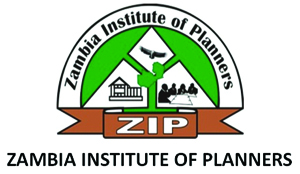 By NAMATAMA MUBIANA
By NAMATAMA MUBIANA
and LOGAN MWAPE –
URBAN and regional planning is offered at the Copperbelt University in the School of the Built Environment.
It is successfully completed in the duration of five years after which a bachelor of science degree is conferred.
For one to be eligible to qualify for selection into the urban and regional planning programme, he/she must have attained a Grade 12 school certificate, with minimum entry points of distinctions and merits in Mathematics, business subjects, Geography and arts-related subjects standing at an advantage for selection.
Famouw definitions of planners in Zambia
• Give plots/land
• Plan for infrastructure development
• Physical planner
• Spatial planner
• Demolish illegal developments
• An Economist
• Draw building plans
•Plan for land development
• Arranges the orderly development of a town or city.
What is planning
Planning is generally defined as a rational decision-making process that attempts to achieve predetermined goal(s) through some form of action. Planning is the most basic tool employed at any of human living to ensure continuity of survival.
It integrates consumption, appreciation and co-existence of humanity with the environment.
Overtime, the dynamics of human societies have demonstrated the need for pragmatic mode of determining the existence of humanity both for his present satisfaction and for the benefit of future generations.
The realisation of such objectives is embedded in the principles, methodologies and theoretical concepts and doctrines underlying the study of Urban and Regional Planning.
What is urban and regional planning?
Urban planning is an important function in many professions.
You may find yourself working as a consultant alongside politicians or in private companies.
There is also demand for planners by local councils and State planning authorities in strategic and regulatory roles.
Planners are allied professionals to engineers, architects, realtors (estate agents), quantity surveyors and environmental consultants.
They provide advice, support and their expertise in planning to ensure that proposed projects are appropriately developed, assessed and investigated at a range of levels.
There is also an important role for planners in the development of policy, particularly in domestic and international development, depending on the area of expertise.
Planning is a vibrant, challenging and rewarding career.
It is much more than the simple, technical evaluation of different site planning and design options. Urban and regional planning programme gives you the tools and approaches that will enable you to work in planning-based roles both locally and internationally, this is because of the strong connections the programme gives you.
The urban and regional planning degree is embedded in three traditions: The first is that of economic planning, it is the form of planning which is linked to social policies which together would form the framework of a ‘welfare state’.
The second strand is that of the management of the physical development (physical planning) of towns which promotes health, economy, convenience and beauty in urban settings.
The third is the management of public administration and policy analysis, which aims to achieve both effectiveness and efficiency in meeting explicit goals set for public agencies.
It is a dynamic profession that works to improve the welfare of people and their communities by creating more convenient, equitable, healthy, efficient and attractive places for present and future generations. Planning enables civic leaders, businesses and citizens to play a meaningful role in creating communities that enrich people’s lives.
Planning as an activity of governments, works with elected and appointed officials, in helping them make decisions of lasting value.
Planning helps create communities that offer better choices for where and how people live. It helps communities to envision their future.
It helps them find the right balance of new development and essential service, environmental protection and innovative change.
Job opportunities
Ministry of Local Government and Housing?Ministry of Finance?Local authorities?non-governmental organisations like UN, SNV, World Bank, IMF, and ILO etc.
Planning consultancy firms?private sector firms like business and mining houses?And many more institutions and organisations.
A planner, an advocate for sustainable development.
Comments:The Zambia Institute of Planners, Student Chapter-Copperbelt University, Department of Urban and Regional Planning, P.O BOX 21692, Kitwe-Zambia.






